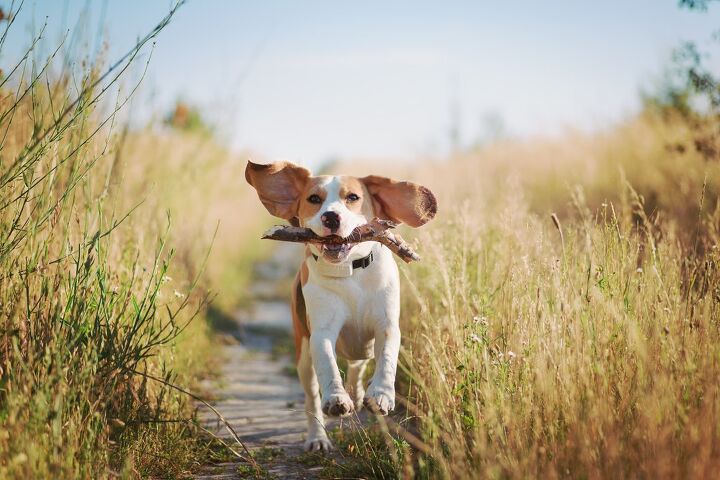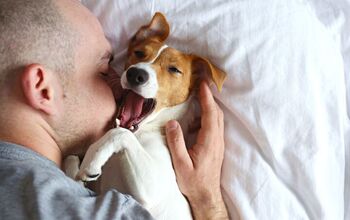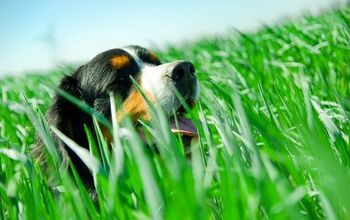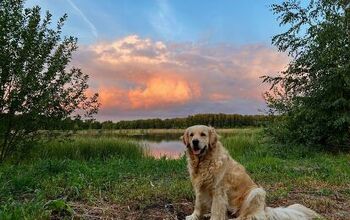How Much Outdoor Time Does My Dog Need?

Spending time outside is very important for overall physical and mental health, both for humans and animals alike. Our pets, dogs especially, can be quite dependent on the time they spend outdoors. It helps stimulate them, keep them mobile and active, and also helps them spend all that extra energy they have stored which in turn impacts their behavior for the better. But as it is with everything in life, there is always too little and too much of a good thing. So in the end, it does make you wonder – just how much outdoor time does your dog need? And, can you really overdo it? Let’s find out!
How Much Outdoor Time Does My Dog Need?
The amount of outdoor time your dog needs can vary based on factors such as their breed, age, health, and individual preferences of your dog. It can’t really be the exact same for all dogs out there. Just like humans, some pooches have preferences of their own. Some love to snooze and relax, and aren’t really fans of going outside and zooming about. Others, however, can’t get enough of adventures in the great outdoors. Still, in general, all dogs require at least a small amount of daily outdoor exercise and mental stimulation to stay happy and healthy. With that in mind, these are some main factors that could influence the amount of time your pet needs to spend outside of the house:
- Breed
Different breeds have different energy levels and exercise requirements. High-energy breeds
like Border Collies or Labrador Retrievers may need more outdoor time compared to lower-energy breeds like Bulldogs or Basset Hounds. As you get to know your pet and the specifics of their breed, this too will become apparent.
- Age
Age plays a major role in dog energy levels. Puppies generally have more energy and may require several short play and exercise sessions throughout the day. Adult dogs on the other hand usually need at least 30 minutes to 2 hours of exercise per day, depending on the breed and individual needs, whereas seniors usually don’t have as much energy so one walk a day will do just fine for a pooch in his golden years.
- Health
Dogs with certain health issues may have specific exercise restrictions. Consult with your veterinarian to determine an appropriate exercise plan for a dog with health concerns. Don’t overdo it with your dog, if the vet prohibits it. The same goes for seniors, who can’t really play all that much outside.
- Size
Dog size is a big factor in determining energy levels and the need for outdoor fun. Smaller breeds may get sufficient exercise with a shorter walk or playtime, while larger breeds might need longer and more vigorous activities.
- Individual Preferences
Some dogs are more active and enjoy activities like fetching, running, or hiking, while others may be content with a shorter walk or playtime in the yard. On the other hand, some breeds, due to their inherent traits, might love relaxing outside, even when it's chilly. Others, though, will love the warmth and coziness found indoors.
In addition to physical exercise, dogs also benefit from mental stimulation, so include activities like puzzle toys, training sessions, or interactive games in your dog's routine. This is especially important when you simply can’t go outside, e.g. when the weather is too bad even for a walk around the block.
It's essential to pay attention to your dog's behavior. If your dog seems restless, anxious or exhibiting destructive behavior, it may be a sign that they need more physical or mental stimulation. On the other hand, if your dog seems lethargic or disinterested, they might need a bit more rest.
When you do go out, however, remember to stay safe and in control of things. A good quality dog leash or harness is a must when you go on walks, no matter how well-trained or easy-going your pooch is. Walking your pet off-leash in areas that are not designated as safe for doing so is highly irresponsible – it can endanger both your dog and other dogs you meet along the way.
Ultimately, you are the best judge of your dog's needs. Tailor their outdoor time to their individual requirements, and be flexible in adjusting the duration and intensity based on their age, health, and energy levels. Regular veterinary check-ups can also help ensure that your dog remains healthy and active throughout their life.

A proud mama to seven dogs and ten cats, Angela spends her days writing for her fellow pet parents and pampering her furballs, all of whom are rescues. When she's not gushing over her adorable cats or playing with her dogs, she can be found curled up with a good fantasy book.
More by Angela Vuckovic

























